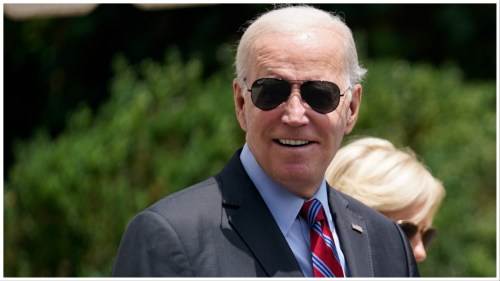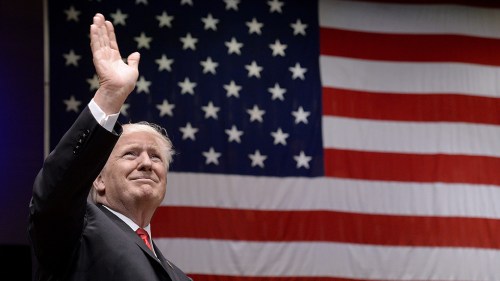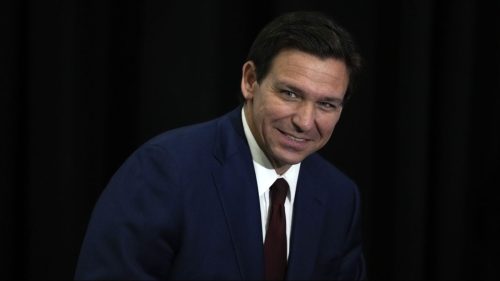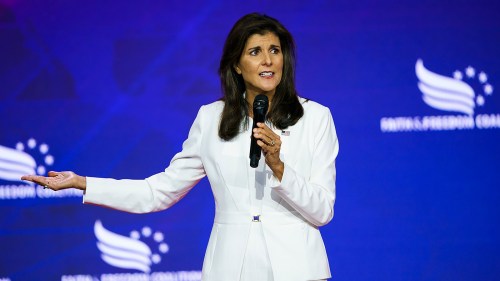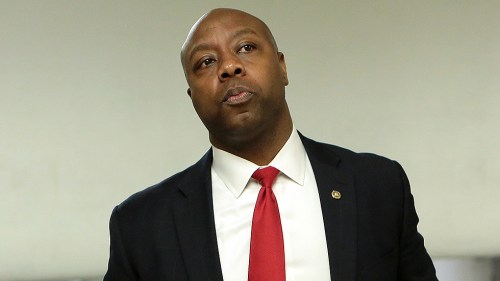Trump, GOP rivals move in on Iowa with 100 days to caucuses

Former President Trump is looking to consolidate his lead in Iowa with 100 days left before the state’s all-important caucuses.
Trump is visiting Iowa again this weekend, the latest in a string of trips as he appears to be upping his presence in the Hawkeye State, with a few of his competitors centering their candidacies on the state.
The GOP front-runner is holding an event in the town of Waterloo on Saturday for the 100-day mark as part of his effort to ensure no other candidate is able to close in on his lead, which, although significant, is not certain to remain.
“It’s obviously Trump’s to lose,” said Republican strategist Doug Gross, referring to the caucuses. “He’s got the strongest and the largest and the most intense base of support. In Iowa, for caucuses, that’s a double-edged sword, because it also means expectations.”
Trump has been the favorite for the Republican nomination for months, especially as his closest competitor, Florida Gov. Ron DeSantis, has seen a major dip in the polls. The former president leads by as much as 30 points or more on the national level and in the early-voting states in most polling.
But Trump’s lead in Iowa, while substantial, has remained less than his lead in national polls, signaling that the first state to vote in the GOP nominating process could be one of the best opportunities for another candidate to hand Trump a disappointing performance.
Strategists and political experts said Trump’s front-runner status means the expectations will be high for him, while the other candidates will look at Iowa as the place to reinvigorate their campaigns.
Trump has been picking up his appearances in the Hawkeye State in recent weeks, as others in the race have as well. He will be appearing Saturday with two state representatives, among others.
Trump has also set up a website specifically designed for Iowa, with a countdown clock to the caucuses and directions for his supporters to get involved in the campaign and the Jan. 15 vote.
The website includes a message from Trump to Iowa voters in which he touts how his policies have helped the state.
“I need all of my supporters to make sure you’re registered Republicans in order to participate in this incredible Iowa tradition,” he said in the video.
“The caucuses are one night only, just one night. Turn around our country,” Trump continued.
Gross, who was the Republican nominee for governor of Iowa in 2002, said Trump has a professional team who is aware of the expectations-factor of the race.
He said Trump is making more stops in the state, because if he does not meet those expectations, even if he wins, “the world could change overnight.”
“There’s plenty of downside for Donald Trump in Iowa because if he doesn’t meet expectations in terms of the results … it makes him vulnerable in future states,” Gross said, adding that Trump is probably in “the most vulnerable position [in Iowa] he is anywhere right now.”
He said that merely winning the state would not be enough for Trump to have an impressive performance — he needs to be far ahead of anyone else.
Other candidates have increasingly staked more of their candidacies on Iowa, which has typically had a role in making clear who in the field has a strong chance at the nomination going forward.
“Iowa isn’t the kingmaker, but we separate the contenders from the pretenders, and it’s where the field will narrow a lot,” said Tim Hagle, an associate professor of political science at the University of Iowa.
DeSantis has arguably gone the most all-in on Iowa. He has said he would visit all 99 counties in the state by the end of October, and his campaign announced Wednesday that it is relocating a third of its staff to Iowa.
The Never Back Down PAC, the super PAC supporting DeSantis’s candidacy, appointed county-level chairs in all 99 counties in August to oversee operations.
Iowa may be the best chance for the Florida governor to break through of the early states.
Although he trails Trump by more than 30 points in the state, according to the RealClearPolitics polling average, he appears to be in a better position there than in New Hampshire or South Carolina.
Some polls have begun showing former United Nations Ambassador Nikki Haley ahead of DeSantis in New Hampshire, and DeSantis will have to compete with two candidates in South Carolina who claim the state as their home — Haley and Sen. Tim Scott (S.C.).
Hagle said Iowa is more important in the process than it is usually, especially for DeSantis.
“The idea is, if you don’t stop Trump here, you’re probably not going to stop him elsewhere,” he said.
Former Vice President Mike Pence has been trying to get his message to appeal to the wide religious conservative segment of voters in Iowa.
The super PAC supporting him, Committed to America PAC, said in a memo last month that its members had knocked on more than half a million doors in the state during the campaign so far, and the organization has focused on directly contacting voters. Pence is also visiting the state and holding several events over the weekend.
Scott, who also focused much of his candidacy on trying to develop grassroots appeal to evangelical voters, visited the state Wednesday.
Barbara Hames-Bryant, the president of the Iowa Federation of Republican Women, said she has not noticed “any of the candidates backing off” from competing in Iowa despite Trump’s lead in the polls. She said entrepreneur Vivek Ramaswamy “might as well be an Iowa citizen” based on the amount of time he has spent there.
“None of the other candidates are irrelevant. Even though percentage-wise they’re way behind Trump, that still accounts for … hundreds of thousands of votes [available],” she said.
“That’s still pretty significant, given that Trump is a former president and kind of an incumbent.”
One characteristic of Iowa’s caucus system that sets it apart from primaries is the need for a greater commitment from participants in the process. Caucus-goers gather at a local place like a school or church to listen to speakers advocate for a certain candidate before voting who they prefer, requiring more of a time commitment on their behalf than from voters than in a primary.
Hames-Bryant said the enthusiasm that many Trump supporters have could translate well to getting people to come vote in the caucuses, adding that she has “never seen more loyal supporters than Trump supporters.” But she said likely as many people would like to see another candidate as the nominee other than Trump.
“Iowa does have a pretty good feel for who is going to make it and who’s not going to make it,” Hames-Bryant said.
Dennis Goldford, a professor of political science at Drake University in Des Moines, said Iowa voters expect their candidates to show up in the state to ask for their support, and the caucuses are a personal event for many voters.
“They expect everybody to show up in Iowa in person. The old line about caucuses is, ‘Do you support so-and-so?’ ‘Well, I don’t know. I’ve only met him three or four times, and I haven’t decided yet,’” he said. “And you can’t do that in any other state, with the possible exception of New Hampshire.”
Brett Samuels contributed.
Copyright 2023 Nexstar Media Inc. All rights reserved. This material may not be published, broadcast, rewritten, or redistributed. Regular the hill posts
